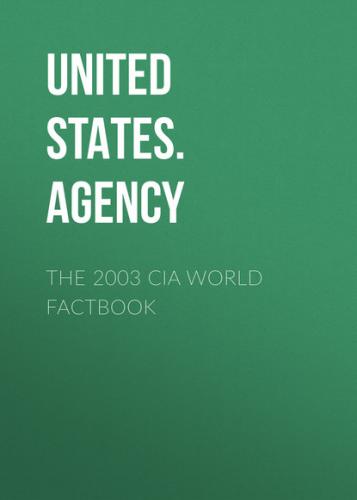inflation dropped back from 5% to 2%.
GDP:
purchasing power parity - $8.444 billion (2002 est.)
GDP - real growth rate:
−0.6% (2002 est.)
GDP - per capita:
purchasing power parity - $30,200 (2002 est.)
GDP - composition by sector: agriculture: 14% (includes fishing 12%) industry: 21% services: 65% (2001 est.)
Population below poverty line:
NA%
Household income or consumption by percentage share:
lowest 10%: NA%
highest 10%: NA%
Inflation rate (consumer prices):
5.2% (2002 est.)
Labor force:
159,000 (2000)
Labor force - by occupation:
agriculture 5.1%, fishing and fish processing 11.8%, manufacturing
12.9%, construction 10.7%, other services 59.5% (1999)
Unemployment rate:
2.8% (2002 est.)
Budget:
revenues: $3.5 billion
expenditures: $3.3 billion, including capital expenditures of $467
million (1999)
Industries:
fish processing; aluminum smelting, ferrosilicon production,
geothermal power; tourism
Industrial production growth rate:
0.2% (2002 est.)
Electricity - production:
7.894 billion kWh (2001)
Electricity - production by source: fossil fuel: 0.1% hydro: 82.5% other: 17.5% (2001) nuclear: 0%
Electricity - consumption:
7.341 billion kWh (2001)
Electricity - exports:
0 kWh (2001)
Electricity - imports:
0 kWh (2001)
Oil - production:
0 bbl/day (2001 est.)
Oil - consumption:
16,300 bbl/day (2001 est.)
Oil - exports:
0 bbl/day (2001)
Oil - imports:
15,470 bbl/day (2001)
Agriculture - products:
potatoes, green vegetables, chicken, pork, mutton; fish
Exports:
$2.3 billion f.o.b. (2002)
Exports - commodities:
fish and fish products 70%, animal products, aluminum, diatomite,
ferrosilicon
Exports - partners:
Germany 18.5%, UK 17.5%, Netherlands 11.4%, US 10.9%, Spain 5.2%,
Denmark 4.6%, Portugal 4.3%, Norway 4.2% (2002)
Imports:
$2.1 billion (2002)
Imports - commodities:
machinery and equipment, petroleum products; foodstuffs, textiles
Imports - partners:
US 10.9%, Germany 10.7%, Denmark 8.5%, Norway 8%, UK 7.5%,
Netherlands 6%, Sweden 5.9% (2002)
Debt - external:
$2.6 billion (1999)
Economic aid - donor:
$NA
Currency:
Icelandic krona (ISK)
Currency code:
ISK
Exchange rates:
Icelandic kronur per US dollar - 91.66 (2002), 97.42 (2001), 78.62
(2000), 72.34 (1999), 70.96 (1998)
Fiscal year:
calendar year
Communications Iceland
Telephones - main lines in use:
196,984 (2001)
Telephones - mobile cellular:
248,131 (221,231 GSM, 26,900 NMT) (2001)
Telephone system:
general assessment: extensive domestic service
domestic: the trunk network consists of coaxial and fiber-optic
cables and microwave radio relay links
international: satellite earth stations - 2 Intelsat (Atlantic
Ocean), 1 Inmarsat (Atlantic and Indian Ocean regions); note -
Iceland shares the Inmarsat earth station with the other Nordic
countries (Denmark, Finland, Norway, and Sweden)
Radio broadcast stations:
AM 3, FM about 70 (including repeaters), shortwave 1 (1998)
Radios:
260,000 (1997)
Television broadcast stations:
14 (plus 156 low-power repeaters) (1997)
Televisions:
98,000 (1997)
Internet country code:
.is
Internet Service Providers (ISPs):
20 (2001)
Internet users:
220,000 (2002)
Transportation Iceland
Railways:
0 km
Highways:
total: 12,955 km
paved/oiled gravel: 3,863 km
unpaved: 9,092 km (2003)
Waterways:
none
Ports and harbors:
Akureyri, Hornafjordhur, Isafjordhur, Keflavik, Raufarhofn,
Reykjavik, Seydhisfjordhur, Straumsvik, Vesttmannaeyjar
Merchant marine:
total: 1 ships (1,000 GRT or over) 3,500 GRT/5,000 DWT
ships by type: chemical tanker 1 (2002 est.)
Airports:
86 (2002)
Airports - with paved runways:
total: 13
over 3,047 m: 1
1,524 to 2,437 m: 4
914 to 1,523 m: 8 (2002)
Airports - with unpaved runways:
total: 73
1,524 to 2,437 m: 3
914 to 1,523 m: 21
under 914 m: 49 (2002)
Military Iceland
Military branches:
no regular armed forces; Police, Coast Guard
Military manpower - availability:
males age 15–49:
